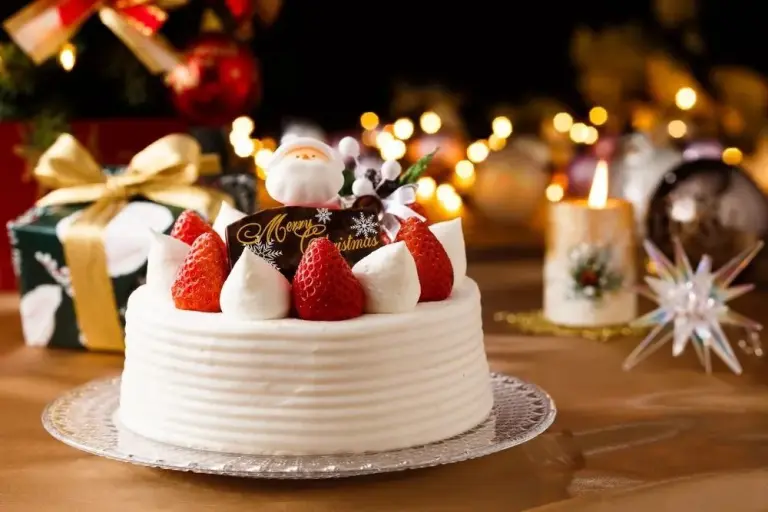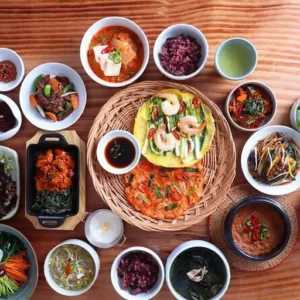Nestled high in the Himalayas, Bhutan is a land where mystery radiates from sacred spiritual landmarks. This beautiful country spans 38,394 km², has a population of 797,765, and is famously one of the world’s only carbon-negative nations.
Anyone who has read about Bhutan has likely come across its unique “No Killing Law”. Across the entire country, killing animals is prohibited. As a result, all meat consumed in Bhutan is imported from abroad. This law reflects the country’s deep Buddhist roots—most Bhutanese people practice Buddhism in their daily lives.
According to the Global Religious Futures Project, as of 2020, about 75% of Bhutan’s population identified as Buddhist, 23% as Hindu, and the rest followed other religions.
Religions Practiced in Bhutan
Vajrayana Buddhism is considered the state religion of this “Happiest Nation.” Religion plays an inseparable role in the lives of the Bhutanese. A small portion of the population follows animism—the belief that all things, natural phenomena, and other entities in the natural world possess a spirit—or combines Buddhism with local indigenous beliefs.
>> Unique cultural traits of the land of the Thunder Dragon, Bhutan
Buddhism – Bhutan’s Largest Religion
In Bhutan, Buddhism is more than a religion—it is a cultural identity. Although Bhutanese Buddhism has its historical roots in Tibet, the rituals, monastic systems, and other aspects of the faith have evolved into a distinctly Bhutanese form.
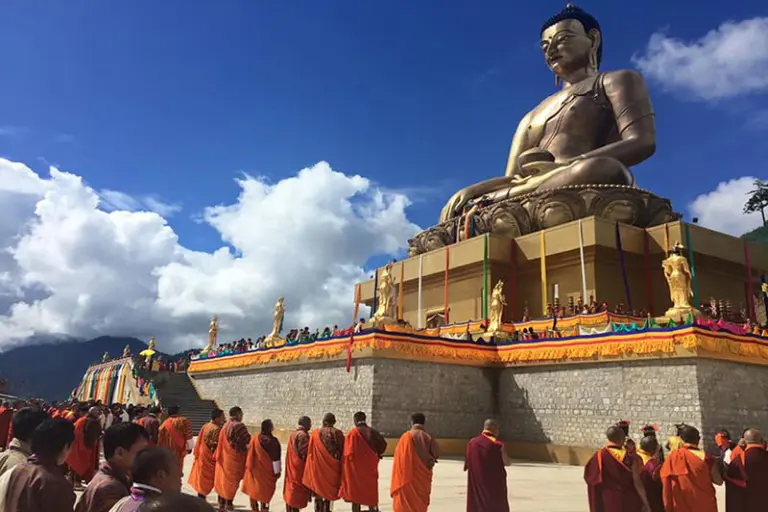
Buddhist monasteries flourish across Bhutan, strongly supported by the royal family. The government even provides annual stipends for both male and female monks to help sustain the religion.
With over 75% of the population identifying as Buddhist, its influence is visible everywhere—in the architecture, in the fluttering prayer flags on mountain ridges, and in the peaceful mindset of the people. Bhutanese Buddhists tend to live simply, free from greed and material obsession.
This Buddhist philosophy even shapes social customs. For example, despite a divorce rate of up to 50%, divorce in Bhutan is not seen as shameful. Instead, it is understood through the Buddhist view of karma and destiny—when two people’s karmic connection ends, they simply move on without resentment or societal pressure.
Hinduism in Bhutan
Hindus primarily live in southern Bhutan, mostly belonging to the Lhotshampa ethnic community of over 200,000 people. They include Vaishnavites, Shaivites, and followers of other Hindu sects.
Hindus in Bhutan celebrate Dashain as their main festival, which is also the only Hindu holiday officially recognized as a national holiday in Bhutan.
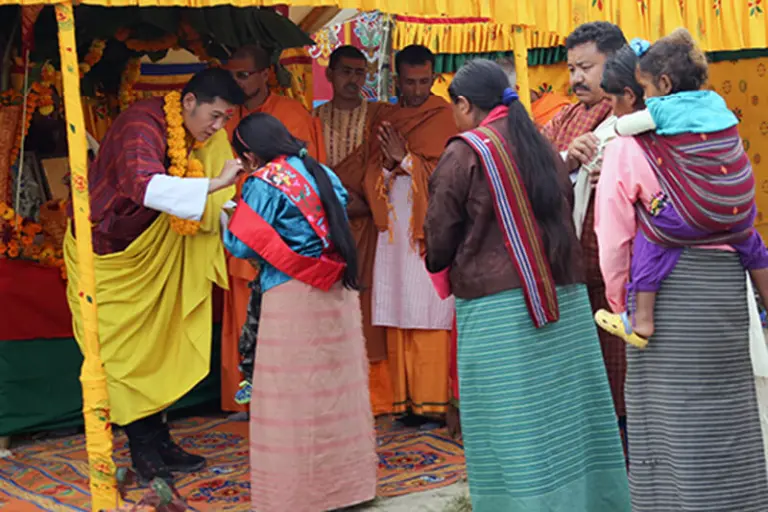
>> The people of Bhutan – 7 fascinating facts about the happiest residents on earth
Other Religions in Bhutan
Aside from Buddhism and Hinduism, small numbers of Christians and other religious groups live in Bhutan. Christianity was first introduced in the 17th century by Portuguese missionaries, but it never gained many followers compared to the long-established Buddhist and Hindu faiths. Today, Christians—about 0.2% of the population—are mostly from Nepalese ethnic groups.
Bhutan is also home to Bon, an indigenous spiritual tradition that predates Buddhism. Bon centers on nature worship and shamanistic practices. While only a small percentage strictly follow Bon, many Buddhists incorporate Bon rituals and beliefs into their practice, creating a unique spiritual fusion.
Religious Tolerance
Bhutanese law allows all citizens to freely practice their religion of choice. The government protects this right while ensuring that Buddhist values—the country’s main cultural foundation—are respected.
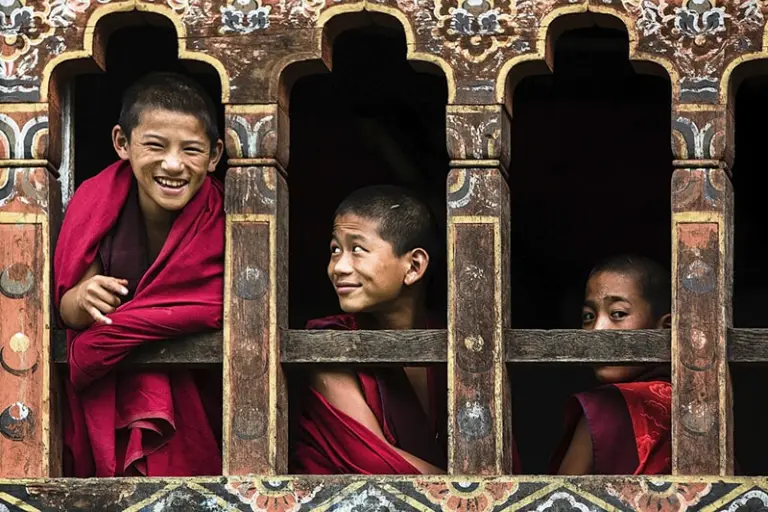
The people of Bhutan are peaceful and respectful toward others’ beliefs. There is no record of religious violence or forced conversions here—making Bhutan not just a spiritual haven, but also a rare example of harmonious coexistence between faiths.
>> Bhutan cultural Festivals – The colors of Bhutan’s traditions


